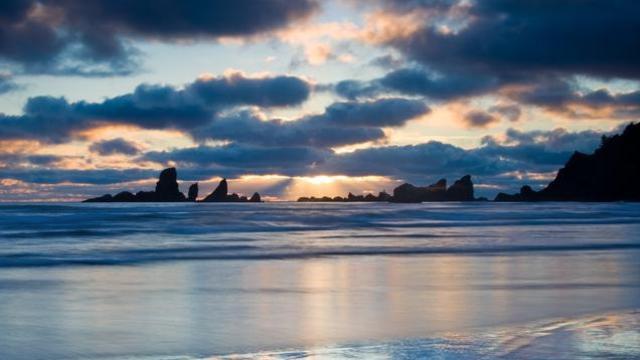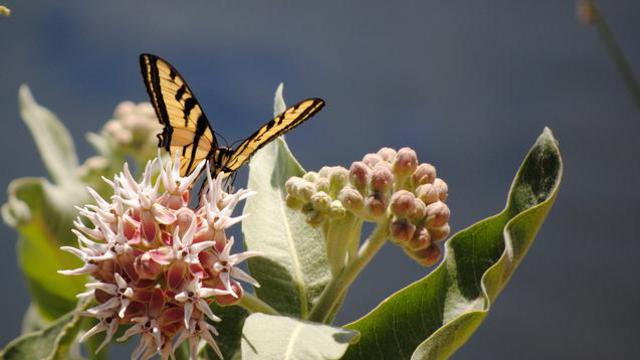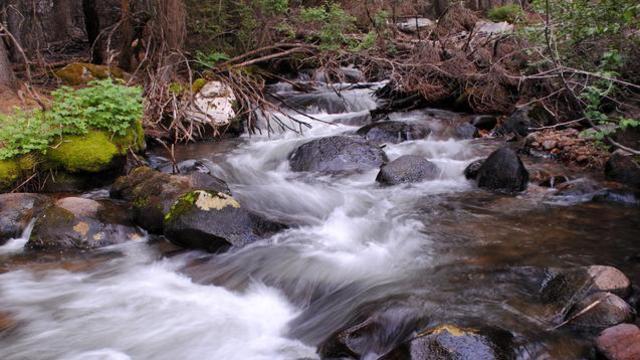LDS Church leaders have made strong statements of their own about the environment over the past two years, some strikingly similar to comments by Pope Francis in his 184-page papal encyclical issued Thursday.
Prominently displayed on the website MormonNewsroom.org and first posted in 2013, the topic page "Environmental Stewardship and Conservation" teems with resources about the positions and doctrine of The Church of Jesus Christ of Latter-day Saints, including a landmark talk two years ago by one church leader that drew broad praise from conservationists inside and outside the faith.

Where Pope Francis said there is "a relationship of mutual responsibility between human beings and nature" and worries throughout about the impact of environmental damage on the poor, the LDS web page says, "All humankind are stewards over the earth and should gratefully use what God has given, avoid wasting life and resources and use the bounty of the earth to care for the poor and the needy."
The pope also said, “The earth, our home, is beginning to look more and more like an immense pile of filth," while the LDS page says, "God intends his creations to be aesthetically pleasing to enliven the mind and spirit, and some portions are to be preserved. Making the earth ugly offends him." The final sentence is a paraphrase of a statment by late LDS Church President Gordon B. Hinckley.
The New York Times characterized the pope's letter as an attempt "to reframe care of the earth as a moral and spiritual concern, and not just a matter of politics, science and economics."
For Mormons, care of the earth has always been a moral and spiritual concern. They believe each plant, each animal and the earth itself have a spirit or, in other words, they are living souls.
Landmark talk
Two years ago, the Wallace Stegner Center extended an invitation for an LDS leader to speak on religion, faith and the environment at its annual symposium at the University of Utah.
The president of the LDS Church's Quorum of the Twelve Apostles assigned a member of the faith's Quorum of the Seventy, Elder Marcus B. Nash, who accepted the invitation. His talk also echoes the pope's and the church's teachings about humble dominion and stewardship and concern for the poor.

Elder Marcus B. Nash speaks at the October 2012 LDS general conference in Salt Lake City. Elder Nash, a member of the church's Quorum of the Seventy, delivered a broadly praised talk about LDS views of the environment two years ago. The talk surveyed the church doctrine and statements by church leaders.
"The unbridled, voracious consumer is not consistent with God's plan of happiness, which calls for humility, gratitude and mutal respect," Elder Nash said.
The talk is a unique survey of LDS Church teachings. Elder Nash referenced 29 scriptures and seven statements by church leaders to lay out the faith's longstanding but often little-known doctrine on environmental stewardship.
"You can't find anything like it by a church leader," said BYU humanities professor George Handley, who co-edited the 2006 book "Stewardship and the Creation: LDS Perspectives on the Environment." "You can find the doctrines embedded in the Bible, the Book of Mormon and the Doctrine and Covenants, but while the Judeo-Christian world has exhaustively written about the Bible and the environment, we Mormons haven't tackled it in so concentrated a way.
"Elder Nash did brilliant job of explaining the purposes of creation, the primary purpose of relieving poverty and the use of resources properly. I can't think of a single doctrine he didn't touch on. It is a very thorough examination."
"Our approach to the environment," Elder Nash said, "must be prudent, realistic, balanced and consistent with the needs of the earth and of current and future generations."
Family's central role
On Thursday, the pope again called the family "the basic cell of society." Elder Nash began there, too.
"God’s plan was — and is — that his children come to this earth through marriage between a man and a woman, who are to procreate, form a family and teach children to choose the good part in a world with real moral choices and consequences."
The opportunity to make choices allows men, women and children the chance to become something more than self-interested.
"Humankind is not an interloper or a sideshow on this earth," he told the Deseret News in an interview in the fall of 2013. "We are far from a sideshow. We are central to its purpose. If we choose wisely, we can grow and develop and improve and inherit all that Heavenly Father has for his children. Now, if we understand that core tenet, then we understand the Lord created the earth to bless and benefit his children. Then we are to use the resources of this earth to further his cause, which will ennoble and bless all mankind."
For a Mormon, considering environmental stewardship requires consideration of theology.

"I really believe that with the environment, you can't pick up one end of the stick without picking up the other," Elder Nash said. "When we speak of this earth, we have to speak also of its purpose. That cuts a very wide swath in human society and in the eternities."
Mormons believe that after Christ comes again, the earth eventually will be transfigured and become heavenly, the very place where families can live together forever.
"The earth in its existence fulfills the purposes for which it was created," Elder Nash said in the interview. "And because it will be faithful in that sense, it will be renewed, and become a celestial place where God will dwell. I see a consistency there that, if I on this earth will follow the creator of heaven and earth, respecting him and his creations, serving his children, using his creation to serve and bless his children, that there will be a nice symmetry, that as I am faithful to the Lord and true to him and the purposes of his creations, that I too can be celestialized and live on a celestial orb in his presence with my beloved family."
Compassion for all
In these recent statements, both Catholic and LDS leaders clearly state that the dominion over the earth taught in the Bible requires compassion for the earth and all its creatures.
"There's a corollary between the selfish, self-centered wickedness of humankind and pollutions upon this earth, both temporal and spiritual," Elder Nash said in an interview. "There is a connection between the status of the human soul and the condition of this earth, both spiritually and temporally.
In his talk he asked, "Will we not have compassion on the earth? Or are we too caught up in our personal pursuits and desires?"
"What characterizes Elder Nash’s talk and the pope's encyclical is a central concern for the poor," said Handley, whose 2001 BYU Studies article, "The Environmental Ethics of Mormon Belief" is linked to prominently on the Mormon Newsroom page. "Many people consider human needs and the needs of the environment as categorically at odds. This is not consistent with the scriptures. Revelations make it clear that we should be working and can be working for the well-being and health of the human and natural communities simultaneously."
Nash did not specifically address climate change, and the Mormon Newsroom page did not take a position. The position taken by Pope Francis garnered increased attention because he aligned himself with what the New York Times called mainstream science and classified climate change as a global problem.
The pope's acceptance of climate change as a fact motivated the historic encyclical, and Handley said that as believing stewards of the earth, Mormons should evaluate their impact on environment.
"I hope we can learn to connect the dots and understand how we live and how we use resources and what resources we choose to use all affect the earth and the many communities of the poor across the world," Handley said. "We cannot pretend to live in isolation from these consequences. There is no scriptural foundation for believing that we live and act and consume in a vacuum."

Since 1830
Elder Nash said he is not an expert on the environment, nor the church's spokesman for it, though he loves the outdoors and what he called God's "matchless genius for beauty." He also noted the vast complexities of the issues involved.
"All I did was pull together the doctrine that's been there," he said. "It's been a part of the Restoration since Joseph Smith. What I taught has always been there. It isn't anything new. My purpose on this topic I believe was to set forth the doctrine so that that could then guide the discussions as people get to the brass tacks of tackling big issues."
The church's Mormon Newsroom page includes links to selected scriptures and church leader statements,additional articles and resources and information aboutthe church's own green efforts.
Last year, the church released a Mormon Channel videonow featured on the page.
The video's narrator says, "We are stewards, not owners. The beauty of God's creations is a gift to humankind, and if we preserve these special places in their unspoiled state, it will silently, eloquently, witness of our God and inspire us all and upward."
For Handley, Elder Nash's talk, the church's web page and video are welcome.
"The youth of the church are very hungry for this kind of thing," he said, producing another echo to the pope's words on Thursday. "I think these teachings taste good to those students. They recognize something they can respond to that is very exciting to them. They feel it gives them a deeper sense of priority in their lives."